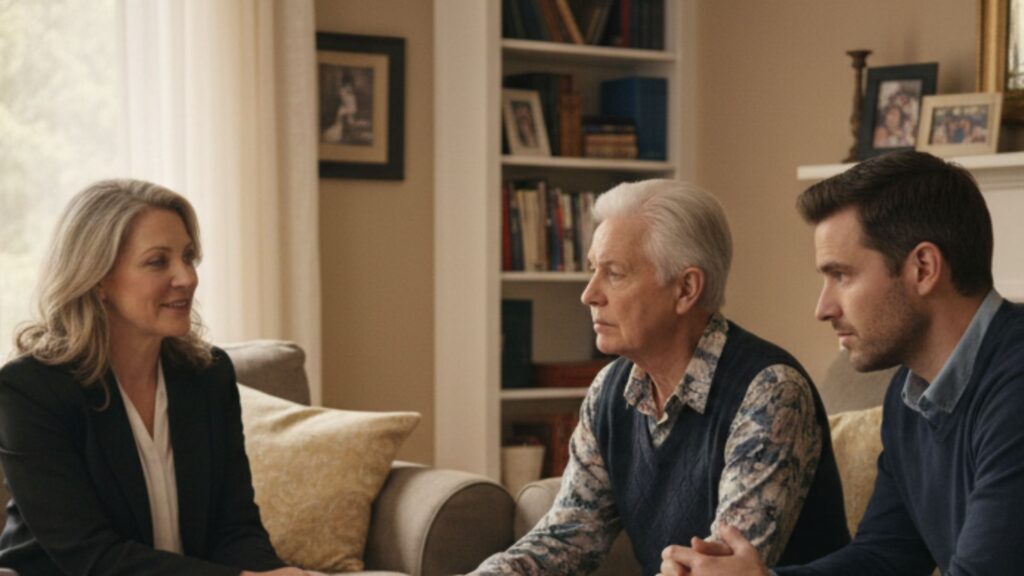When most people hear the words estate planning, they picture the ultra-wealthy, people with sprawling mansions, multiple businesses, or investment portfolios worth millions. But the truth is, estate planning isn’t just for them, it’s for everyone. The common myths about estate planning often stop people from taking action, leaving families unprepared and unprotected when the unexpected happens.
At its core, estate planning isn’t about how much you have; it’s about who you love, what matters to you, and how you want to protect your legacy.
Myth #1: “I Don’t Have Enough for an Estate Plan”
Perhaps the most widespread of all estate planning misconceptions, this myth assumes that estate planning is only for the rich. In reality, if you own anything, be it a home, car, savings account, or even personal belongings, you have an estate.
Without an estate plan, state laws determine how your assets are distributed. This process can be time-consuming, costly, and emotionally draining for your loved ones. Having a plan in place ensures your wishes, not the state’s, guide those decisions.
A simple will, a revocable trust, or even a power of attorney can make a huge difference in ensuring your family’s peace of mind, regardless of the size of your estate.
Myth #2: “Estate Planning Is Only for Older Adults”
Another common estate planning mistake is assuming that it’s something you only need to think about after retirement. But unexpected events can happen at any age. Young professionals, parents, and even college students can benefit from basic planning tools such as a healthcare directive or durable power of attorney.
The importance of estate planning goes far beyond inheritance, it’s about ensuring that your health, finances, and responsibilities are managed the way you want if you’re unable to do so yourself.
Think of it as an act of love: protecting your family from uncertainty and hard decisions in difficult times.
Myth #3: “A Will Is All I Need”
While a will is a critical part of your plan, it’s just one piece of the puzzle. Wills must go through probate, which can take months or even years to settle. For many families, establishing a trust can help avoid the probate process, allowing assets to transfer privately and efficiently.
Working with an estate planning lawyer can help you decide whether your situation calls for additional tools such as trusts, guardianship designations, or asset protection strategies. The goal isn’t to complicate things, it’s to ensure your plan works when it matters most.
Myth #4: “My Family Knows What I Want”
While open communication is vital, relying on verbal promises or assumptions is risky. Without legal documentation, family members may disagree or misunderstand your intentions, leading to conflict or even legal disputes.
Formal estate planning for everyone eliminates uncertainty and clearly outlines your wishes; from how assets should be distributed to who should make medical decisions on your behalf. It’s not just about control, it’s about compassion and clarity.
Myth #5: “I’ll Get to It Later”
Procrastination is one of the biggest financial planning myths of all. Life gets busy, and estate planning can seem like a task for “someday.” But waiting too long can have lasting consequences, especially if an emergency strikes before you’ve finalized your plan.
Estate planning doesn’t have to be complicated or overwhelming. The right attorney can help you start small, review your situation, and build from there. What matters most is taking the first step because peace of mind shouldn’t be postponed.
Estate Planning Is for Everyone
Estate planning isn’t about wealth, it’s about intentionality. It’s about protecting your loved ones, preserving your values, and creating a legacy that reflects who you are.
Whether you’re just starting out in life, raising a family, or preparing for retirement, the right plan ensures that your story continues on your terms.
At Krause Estate Planning & Elder Law Center, we’ve seen firsthand how myths and misconceptions can delay critical decisions. Don’t let assumptions prevent you from securing your family’s future. Schedule a consultation today to start building an estate plan that fits your life, your assets, and your goals.
TL; DR
1. What are the most common myths about estate planning?
Many believe estate planning is only for the wealthy or older adults, but in reality, anyone who owns assets or cares about their family’s future needs an estate plan.
2. Why is “I don’t have enough for an estate plan” a dangerous myth?
Even modest estates like a car, home, or savings can become complicated without a plan. Without proper documents, state laws decide who inherits, not you.
3. Is a will enough for complete estate planning?
No. A will is just one component. Trusts, powers of attorney, and healthcare directives can provide greater protection and help avoid probate delays.
4. At what age should someone start estate planning?
It’s best to start early. Young professionals, parents, and retirees all benefit from having documents that outline financial and medical wishes.
5. How can an estate planning lawyer help?
An experienced lawyer helps you customize your plan, ensure legal accuracy, avoid common estate planning mistakes, and protect your loved ones from unnecessary stress or disputes.



